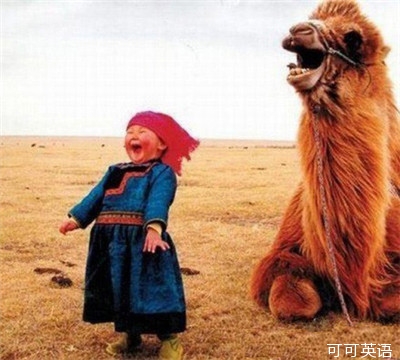(单词翻译:单击)

New guidance for psychologists will acknowledge that adolescence now effectively runs up until the age of 25 for the purposes of treating young people. So is this the new cut-off point for adulthood?
心理学家新指南中指出,在治疗年轻人时,青春期的划分截止到25岁结束。这是否意味着25岁是成年的新分界点呢?
"The idea that suddenly at 18 you're an adult just doesn't quite ring true," says child psychologist Laverne Antrobus, who works at London's Tavistock Clinic.“
“认为满18岁就进入成年其实是不恰当的。”伦敦塔维斯托克诊所的儿童心理学家拉弗-安特罗伯斯表示。
"My experience of young people is that they still need quite a considerable amount of support and help beyond that age."
“从我和年轻人接触的经历来看,18岁以上的年轻人仍然需要很多支持与帮助。”
"We are becoming much more aware and appreciating development beyond [the age of 18] and I think it's a really good initiative," says Antrobus, who believes we often rush through childhood, wanting our youngsters to achieve key milestones very quickly.
“我们也越来越关注18岁以上年轻人的成长,我觉得这是一个很棒的创举。”安特罗伯斯说。在她看来,人们太急于摆脱童年,巴不得在青年时期就成就大业。
The new guidance is to help ensure that when young people reach the age of 18 they do not fall through the gaps in the health and education system. The change follows developments in our understanding of emotional maturity, hormonal development and particularly brain activity.
新指南旨在帮助年满18岁的年轻人跨过健康与教育这道坎。此次变更重在强调对情感成熟、荷尔蒙发展、尤其是大脑活动的理解。
"Neuroscience has made these massive advances where we now don't think that things just stop at a certain age, that actually there's evidence of brain development well into early twenties and that actually the time at which things stop is much later than we first thought," says Antrobus.“
“神经科学已经取得重大进步。现在看来,有些问题并不是到了某个年龄就会自动停止的;事实表明,在二十出头的年纪,大脑还处于成长状态,定型时期远比人们原先认为的晚。”安特罗伯斯说。
There are three stages of adolescence - early adolescence from 12-14 years, middle adolescence from 15-17 years and late adolescence from 18 years and over.
青春期有三个阶段:12-14岁为早期,15-17岁为中期,18岁以上为后期。
Neuroscience has shown that a young person's cognitive development continues into this later stage and that their emotional maturity, self-image and judgement will be affected until the prefrontal cortex of the brain has fully developed.
神经科学表明,年轻人的认知发展会一直持续到后期阶段,而在大脑前额皮层完全发育前,他们的情感成熟、自我形象和判断都会受到影响。
Alongside brain development, hormonal activity is also continuing well into the early twenties says Antrobus.
安特罗伯斯还说,除了大脑发展,荷尔蒙代谢也会一直持续到二十出头的年纪。
"A number of children and young people I encounter between the age of 16 and 18, the flurry of hormonal activity in them is so great that to imagine that's going to settle down by the time they get to 18 really is a misconception," says Antrobus.“
“许多我见过的16-18岁年轻人的荷尔蒙代谢都异常活跃,如果认为他们满18岁就会自动安稳消停,那可大错特错 了。”安特罗伯斯说。
She says that some adolescents may want to stay longer with their families because they need more support during these formative years and that it is important for parents to realise that all young people do not develop at the same pace.
她还说,有些青少年希望能多跟家人呆在一起,那是因为在成长定型阶段,他们需要更多支持;所以父母应该明白,青春期成长是因 人而异的。
But is there any danger we could be breeding a nation of young people reluctant to leave adolescence behind? TV sitcoms are littered with such comic stereotypes of juvenile adults
但是,如果下一代都迟迟不愿离开青春期,那会有什么样的弊端呢?情景喜剧中到处都能看到这种诙谐的长不大的人。
Then there are those characters who want to break away from their overbearing or protective parents or guardians and reach adulthood, but struggle to cut the family ties.
当然,也有年轻人渴望摆脱过于约束或宠溺的父母或监护人,希望尽快跨入成年,可也只能选择脱离家庭关系。
Frank Furedi, professor of sociology at the University of Kent, says we have infantilized young people and this has led to a growing number of young men and women in their late 20s still living at home.
弗兰克-福瑞迪是肯特大学的社会学教授,他说:人们总是把年轻人当孩子看待,结果造成很多年轻人到了20大几岁还住在父母家里。
"Often it's claimed it's for economic reasons, but actually it's not really for that," says Furedi. "There is a loss of the aspiration for independence and striking out on your own. When I went to university it would have been a social death to have been seen with your parents, whereas now it's the norm.
“通常借口总是经济原因,但其实并非如此,” 福瑞迪说,“对独立自主、自立生活的渴望大大削弱。我上大学那会儿,要是还跟父母住一起会被人耻笑,但现在这种情况已经屡见不鲜了。”
"So you have this kind of cultural shift which basically means that adolescence extends into your late twenties and that can hamper you in all kinds of ways, and I think what psychology does is it inadvertently reinforces that kind of passivity and powerlessness and immaturity and normalises that."
“所以才会出现这种文化转变——青春期甚至延长到了二十大几岁,而这有可能妨碍个人成长。我认为心理学无形中强化了这种被动、无助和不成熟,并且使这种现象普遍化。”
Furedi says that this infantilised culture has intensified a sense of "passive dependence" which can lead to difficulties in conducting mature adult relationships. There's evidence of this culture even in our viewing preferences.
福瑞迪还说,这种“孩子化”的文化加剧了“被动依赖”风气,给进入成熟成年期造成了困难。从人们的影视喜好上就能看出这种文化的盛行。
He does not agree that the modern world is far more difficult for young people to navigate.
福瑞迪并不认为现代社会已经艰难到让年轻人无法自立生存。
"I think that what it is, is not that the world has become crueller, it's just that we hold our children back from a very early age. When they're 11, 12, 13 we don't let them out on their own. When they're 14, 15, we hover all over them and insulate them from real-life experience. We treat university students the way we used to treat school pupils, so I think it's that type of cumulative effect of infantilisation which is responsible for this."
“我觉得问题并不是世界变得越来越残酷,而是我们从小就把孩子呵护得太紧。小孩到了11、12岁时还不敢放开让他们独自外出;到了14、15岁时,我们更是严加防范,把他们与现实生活隔离开来。我们现在对待大学生的方式就像以前对待小学生一样。所以在我看来,这就是‘孩子化’风气的症结所在。”


